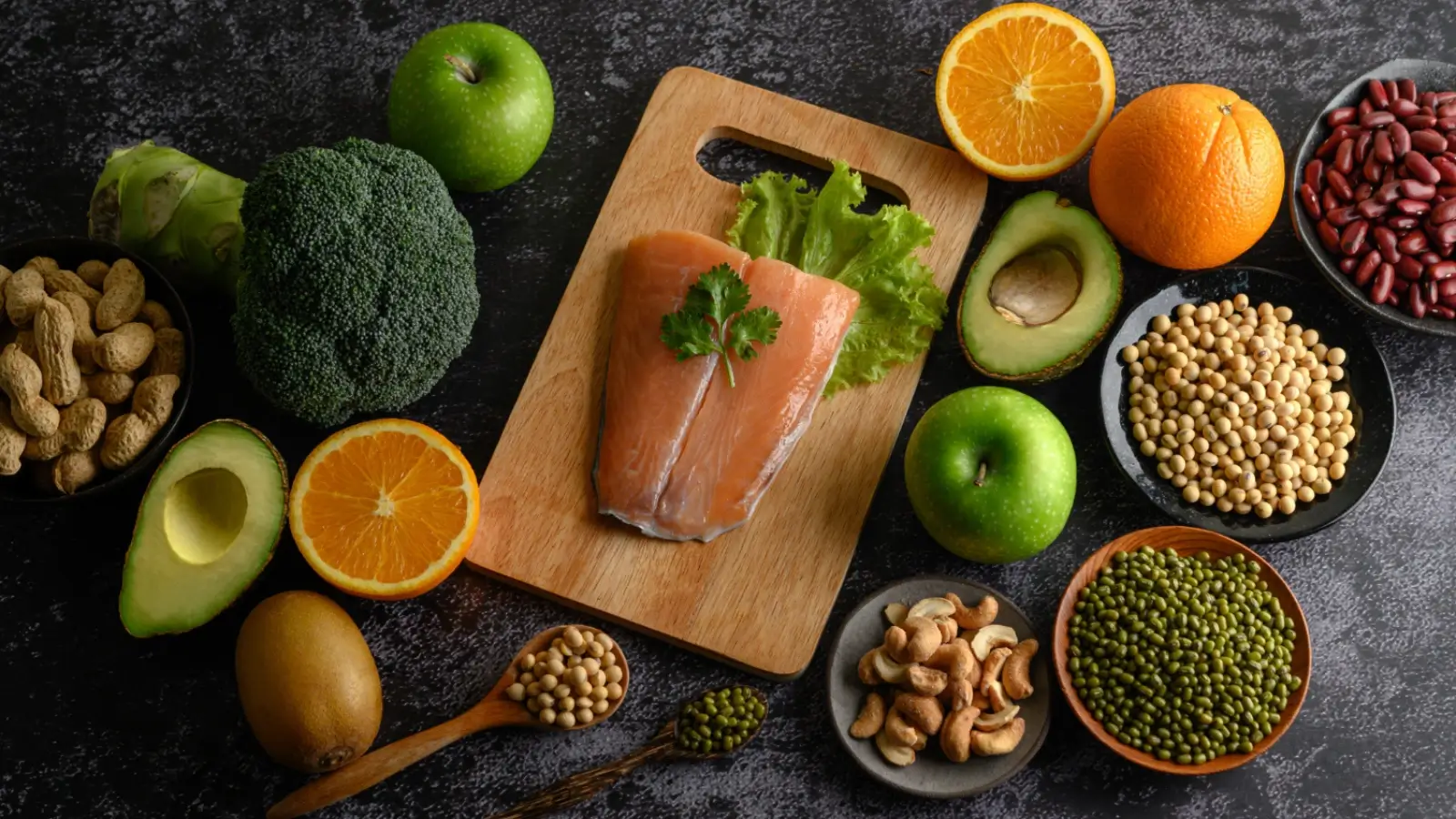


Have you ever noticed how much harder it is to focus when you’re running on junk food or skipping meals? The brain needs steady fuel to stay alert, and the right nutrition can be just as important for concentration as good study habits or work routines.
From the way glucose powers mental energy to the role of specific vitamins, minerals, and healthy fats, what you eat and drink can make the difference between feeling scattered and staying clear-minded.
Your brain is one of the body’s hungriest organs, using about 20% of your daily energy even though it makes up only 2% of your weight. That energy comes mostly from glucose, and the quality of your diet affects how steadily your brain receives it.
When blood sugar rises and falls too quickly, it creates peaks of alertness followed by dips in focus and fatigue. Stable energy levels, on the other hand, help you maintain concentration for longer stretches.
Nutrients also do more than provide fuel. They influence the way your brain cells communicate. Omega-3 fatty acids, for example, help build cell membranes, while vitamins and minerals act as cofactors in the production of neurotransmitters.
In other words, what you eat is not just feeding your body, but shaping how your mind processes information, reacts to stress, and sustains attention.
Certain foods consistently show benefits for mental sharpness. Berries, especially blueberries, are rich in antioxidants that help protect brain cells and have been linked to improvements in memory and learning.
Fatty fish like salmon and sardines supply omega-3s, which play a key role in brain health and communication between neurons. Including these foods in your meals can help build a stronger foundation for focus.
Dark chocolate is another useful addition in moderation, thanks to flavonoids that improve blood flow to the brain and a mild caffeine boost that sharpens alertness. Leafy greens provide compounds like vitamin K and lutein, which support long-term brain function.
Nuts and seeds bring magnesium, zinc, and healthy fats that provide steady energy without spikes or crashes. Together, these everyday foods work like a toolkit for better concentration.
Even slight dehydration (as little as a 1–2% drop in body water) can affect memory, reaction time, and concentration. Because the brain is nearly three-quarters water, keeping hydrated directly supports its ability to process information and regulate mood.
Many people overlook this, mistaking thirst for fatigue or hunger, which often leads to unnecessary snacking or sluggishness during work or study.
Water should be the main source of hydration, but certain drinks can also enhance focus. Green tea, for example, provides caffeine in smaller amounts than coffee, along with L-theanine, which creates a smoother sense of alertness.
Herbal teas like ginseng or peppermint can improve mental clarity without overstimulation. Balancing hydration with gentle, natural stimulants helps you stay alert without the jittery side effects of relying too heavily on coffee.
Supplements can play a supporting role when diet alone doesn’t provide enough of certain nutrients.
Caffeine is well known for increasing alertness, but on its own it can also cause jitters or an energy crash. Pairing it with L-theanine, an amino acid naturally found in tea, creates a smoother effect. The two work together to improve focus and reaction time while reducing restlessness, which makes the combination popular among students and professionals who need long periods of sustained attention.
For people who don’t regularly eat fatty fish, omega-3 supplements can be a practical way to support brain health. These fatty acids are critical for maintaining cell membranes and aiding communication between neurons. Research links adequate omega-3 intake to better memory and sharper cognitive performance, making capsules a convenient backup when diet falls short.
Nootropics and gummies that help you focus are gaining popularity, but they should be approached carefully. Some contain well-studied ingredients like caffeine, L-theanine, or B vitamins, while others include compounds with limited research behind them. Using them responsibly means checking ingredients, understanding their effects, and keeping expectations realistic.
The B vitamins (especially B6, B9, and B12) play a central role in turning food into energy the brain can use. They also support the production of neurotransmitters like dopamine and serotonin, which influence mood and concentration. A deficiency in these vitamins can lead to fatigue and reduced mental clarity, so supplements may help if dietary intake is lacking.
Magnesium helps regulate the nervous system, keeping stress responses under control and supporting a sense of calm. Low magnesium levels are associated with higher anxiety and difficulties with focus, which is why this mineral is often recommended for people who struggle with distraction during stressful periods. Supplementing magnesium can help restore balance, especially if the diet is low in nuts, seeds, and leafy greens.
Just as certain foods can sharpen your mind, others can work against it. High-sugar snacks, while tempting for a quick boost, often lead to crashes that leave you more distracted than before.
Ultra-processed foods are another culprit, as they tend to lack the vitamins, minerals, and fiber that support stable energy. Regularly relying on them can lead to what many describe as brain fog, a sluggish, unfocused state that makes even simple tasks harder.
Too much caffeine is another common issue. While small amounts can improve alertness, going overboard often leads to jitters, anxiety, and difficulty sustaining concentration.
Skipping meals altogether is just as disruptive, because the brain needs consistent fuel. Going long hours without eating makes it harder to make clear decisions and weakens short-term memory, both of which are critical for studying and working effectively.
Consistency is more powerful than chasing the latest superfood. Balanced meals that include protein, fiber, and healthy fats keep blood sugar stable, which in turn supports sustained focus.
A lunch built around lean protein, whole grains, and vegetables will leave you more alert than a fast-food meal high in refined carbs and fried fats. Small, intentional choices like this add up to sharper concentration throughout the day.
Timing also matters. Eating smaller, balanced snacks between meals can help prevent energy dips that derail productivity. Options like trail mix, yogurt with fruit, or a smoothie made with greens and berries provide nutrients and steady fuel without weighing you down.
Pairing these eating habits with enough sleep, movement, and an organized workspace creates a powerful routine that supports both body and mind when focus is needed most.
If distractions feel harder to fight than ever, adjusting what’s on your plate may be one of the simplest ways to reclaim focus. Nutritious foods, proper hydration, and carefully chosen supplements provide the fuel the brain needs to perform at its best, while avoiding energy-draining habits prevents setbacks.
Small, consistent choices like swapping processed snacks for nuts or replacing an extra coffee with green tea can sharpen concentration and make studying, working, or researching far more productive.